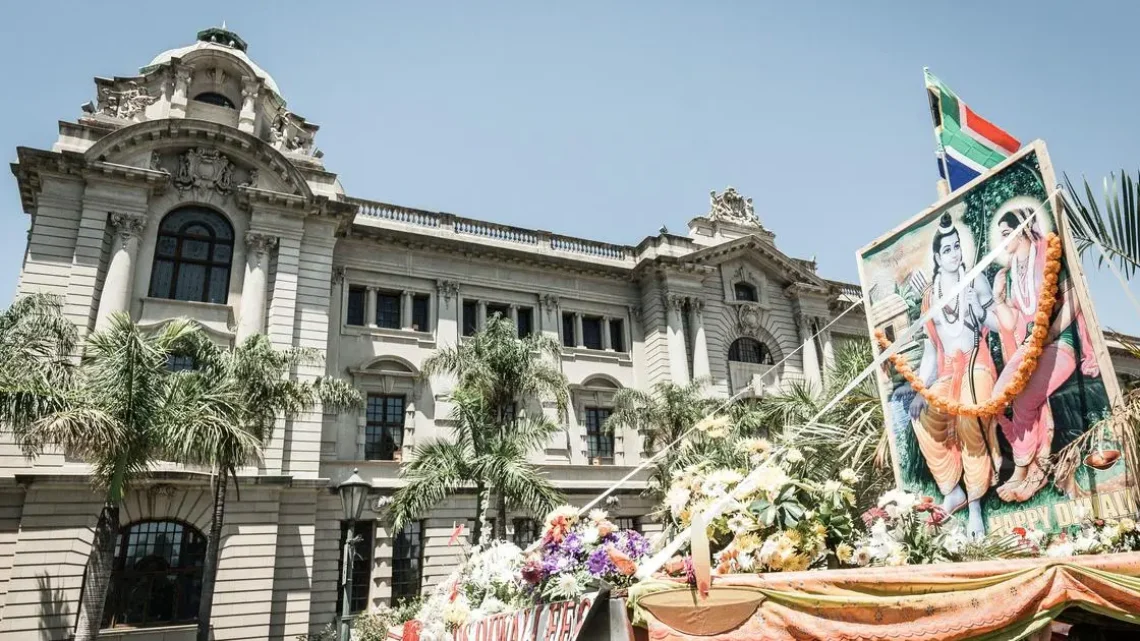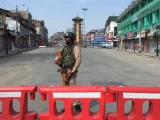
Rising Hindu Nationalism in South Africa: A Growing Threat To Peace
August 29, 2024These ideologies, promoted by extremist groups like the Vishwa Hindu Parishad (VHP), Hindu Swayamsevak Sangh (HSS), and Hindu Unity Forum of South Africa, are gaining traction in South Africa’s Indian community, fueling religious polarization and potential conflict. The spread of Hindu nationalist ideologies in South Africa, driven by the influence of India’s ruling BJP and Prime Minister Narendra Modi, is an alarming trend that threatens the country’s social harmony and could have far-reaching implications beyond its borders. These ideologies, championed by extremist organizations like the Vishwa Hindu Parishad (VHP), the Hindu Swayamsevak Sangh (HSS), and the Hindu Unity Forum of South Africa, are gaining traction within South Africa’s Indian community, leading to increased religious polarization and potential conflict.
In March 2023, an interfaith prayer meeting at the Phoenix Settlement near Durban, organized by Ela Gandhi, was intended to promote peaceful, free, and fair elections in South Africa. However, the event faced significant backlash on social media because no Hindu religious leader offered a prayer for collective peace. This incident is emblematic of the rising tensions within the Indian diaspora in South Africa, fueled by Hindu nationalist rhetoric. Indian diaspora in south Africa includes South African Indians make up around 2.7 percent of the country’s population (1.7 million people). Data shows that around 41 percent of South African Indians are Hindu, 25 percent Muslim and 24 percent Christian.
On August 11, 2024, a protest was staged in Phoenix, Durban, by the local Hindu community, organized by the Indian Association of South Africa (IASA) and the Hindu Association of South Africa. The protest, attended by 40-45 individuals, featured placards with slogans like “Save Bangladeshi Hindus” and “Justice for Mumbai Attack Victims.” The protest was orchestrated by figures such as Mrs. Anitha Hariram of the VHP, Mrs. Seelan Archary of the Shri Mariammen Temple, and Mr. Mervin Govender of the Hindu Unity Forum. The event highlighted how these organizations are leveraging international issues to fuel anti-Muslim sentiments in South Africa.
On August 6, 2024, Mrs. Satish Komal, Chairperson of the Lotus Economic Forum, a nonprofit Hindu organization promoting Hindutva, issued a press release titled “Bangladesh Mayhem – Murder of Innocent People without Provocation.” The release painted the violence in Bangladesh as an Islamic extremist uprising and indirectly implicated Pakistan, similar to the narrative surrounding the Mumbai attacks. This propaganda seeks to create an impression of a global threat from Muslim communities, aligning with the broader Hindu nationalist agenda.
Vishwa Hindu Parishad (VHP) and Hindu Unity Forum of South Africa: These organizations are at the forefront of promoting Hindu nationalist ideologies in South Africa. They have organized protests and distributed propaganda linking South African Muslim communities to global Islamist threats, aiming to marginalize and demonize them.
Hindu Swayamsevak Sangh (HSS): Although the HSS has a limited footprint in South Africa, it is active among recent Indian immigrants and middle-class South African Indians. The group promotes the RSS’s ideology of Hindu supremacy and has pressured mainstream organizations like the South African Hindu Maha Sabha to align with its agenda.
Hindu Maha Sabha: While traditionally a moderate organization, the South African Hindu Maha Sabha has increasingly aligned itself with Hindu nationalist sentiments. In 2024, it organized celebrations for the inauguration of the Ram Mandir in Ayodhya, a controversial temple built over the Babri Masjid. This shift in the Maha Sabha’s stance indicates the growing influence of Hindu nationalist ideologies in South Africa.
Social Media as a Tool for Polarization: Hindu nationalist groups are increasingly using social media platforms to spread divisive and inflammatory rhetoric. For example, a speech by Nathuram Godse, Mahatma Gandhi’s assassin, was circulated on WhatsApp by individuals who identify as opponents of Muslims. Viral infographics and posts have accused South African Muslim leaders of being anti-Hindu, further deepening the rift between communities.
Religious Polarization and Self-Censorship: Hindu nationalist messaging is putting pressure on South African Indian religious leaders to conform. For instance, Rajish Lutchman from Hindvani, a Hindi radio station, reported receiving feedback that the station should stop broadcasting ghazals, which are associated with Muslims. Additionally, some imams have resorted to self-censorship, fearing repercussions from the Indian government if they criticize its policies.
Conversion Concerns and Cultural Insecurity: Many South African Hindus are increasingly worried about the conversion of Hindus to Christianity and Islam, a concern shared by Hindu nationalists in India. This fear is amplified by the growing popularity of Indian news channels and social media, which serve as conduits for nationalist and anti-minority ideologies from India.
The rise of Hindu nationalism in South Africa, while currently limited in scope, has the potential to grow and destabilize the delicate balance of interfaith relations in the country. The divisive rhetoric and actions of these groups could lead to increased tensions between South African Hindus and other religious communities, similar to the violence that erupted between Hindus and Muslims in Leicester, UK, in 2022. Moreover, the alignment of South African Hindu organizations with global Hindu nationalist agendas could strain the country’s international relations, particularly with nations like Pakistan and Bangladesh, and exacerbate existing conflicts within the Indian diaspora.

